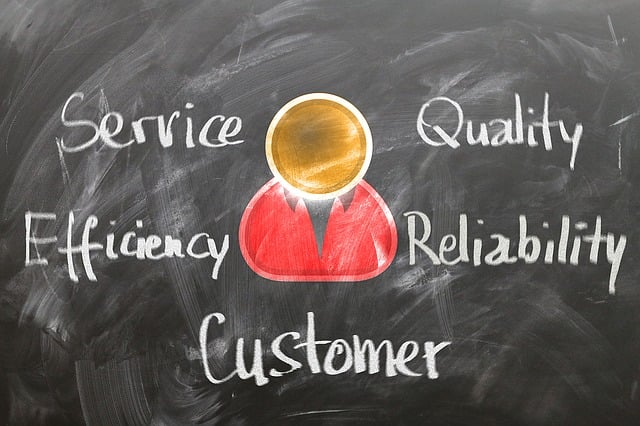Marketing analytics insights power strategic decisions by transforming complex data into actionable intelligence. Automated data collection and reporting from CRM, landing pages, sales pipelines enable real-time analysis of customer behavior, campaign effectiveness, and market trends. This optimizes marketing strategies, enhances performance, and maintains a competitive edge in the digital era.
In today’s data-driven marketing landscape, extracting meaningful insights from vast datasets is crucial. Automating reports offers a game-changing solution, transforming static information into dynamic marketing analytics insights. This article guides you through the process, beginning with understanding the fundamentals of marketing analytics and its significance. We explore efficient data collection automation, the power of automated reporting in uncovering trends, and how to leverage these insights for strategic decision-making.
- Understanding Marketing Analytics: The First Step
- Automating Data Collection for Efficiency
- Unlocking Insights Through Automated Reporting
- Leveraging Automation for Strategic Decisions
Understanding Marketing Analytics: The First Step

Marketing analytics insights are crucial for any business aiming to optimize its strategies and stay ahead of the competition. Understanding Marketing Analytics is the first step in this process, as it involves deciphering complex data into actionable information. By analyzing customer behavior patterns, campaign performance metrics, and market trends, businesses can gain valuable insights that drive decision-making.
A robust Customer Relationship Management (CRM) system, integrated with marketing automation tools, forms the backbone of effective Marketing Analytics. These technologies enable efficient tracking of customer interactions across various channels, including social media platforms, emails, and websites. Automating report generation through these systems ensures timely access to data, allowing marketers to monitor real-time performance and adjust strategies accordingly for improved results in social media marketing automation.
Automating Data Collection for Efficiency

In today’s digital age, marketing analytics insights are a treasure trove for businesses seeking to optimize their strategies and gain a competitive edge. Automating data collection is a game-changer in this regard, as it streamlines the process of gathering valuable information from various sources. By leveraging automation, marketers can efficiently extract data from CRM systems, landing pages, and other digital touchpoints, eliminating manual effort and reducing human error. This ensures that every interaction with customers—from initial leads to post-purchase behavior—is meticulously captured and analyzed.
With automated data collection, businesses can quickly identify trends, patterns, and key performance indicators (KPIs) within their marketing campaigns. For instance, tracking customer journey metrics through a CRM and analyzing conversion rates on landing pages allows for a holistic understanding of the sales funnel. This enables marketers to make data-driven decisions, optimize campaign strategies, and ultimately enhance overall marketing effectiveness.
Unlocking Insights Through Automated Reporting

Automated reporting is revolutionizing the way marketing teams extract valuable marketing analytics insights. By streamlining data collection and analysis, businesses can uncover hidden trends, patterns, and customer preferences that were previously difficult to identify. This efficient process involves integrating various data sources, such as sales pipelines, customer relationship management (CRM) systems, and web analytics platforms, into a unified reporting structure.
Through automated reporting, companies can gain real-time visibility into key performance indicators (KPIs), enabling them to make data-driven decisions quickly. For instance, missed call text back campaigns can be optimized based on automatic tracking of response rates and customer engagement metrics. Marketing automation tools play a crucial role in this process by facilitating the automated generation of reports, ensuring that valuable insights are readily accessible, saving time, and enhancing overall marketing strategy effectiveness.
Leveraging Automation for Strategic Decisions

Leveraging automation in report generation opens up a world of possibilities for strategic decision-making in marketing. By automating the process of collecting and analyzing data from various sources, businesses can gain real-time insights into consumer behavior, campaign performance, and market trends. This capability enables marketers to make data-driven decisions quickly and accurately, optimizing their strategies as they go. For instance, automated reports can provide detailed analytics on a brand’s landing page traffic, including demographics, conversion rates, and user engagement metrics, helping to refine future campaigns and content strategies.
Furthermore, automation can enhance the efficiency of text message marketing and sales funnel management. Marketers can use automated systems to track and analyze customer responses to text campaigns, identifying trends in open rates, click-throughs, and conversions. This data is invaluable for optimizing message frequency, timing, and content, ensuring that each communication with a potential customer has a higher chance of success. Similarly, automation within sales funnels allows businesses to monitor key performance indicators (KPIs) along the buyer’s journey, enabling them to pinpoint areas where leads are dropping off and make necessary adjustments.
By automating reports, marketing teams can efficiently extract valuable marketing analytics insights from vast datasets. This process streamlines operations, enables data-driven decision-making, and ultimately enhances overall marketing strategies. Embracing automation is a game-changer for staying competitive in today’s fast-paced digital landscape.
